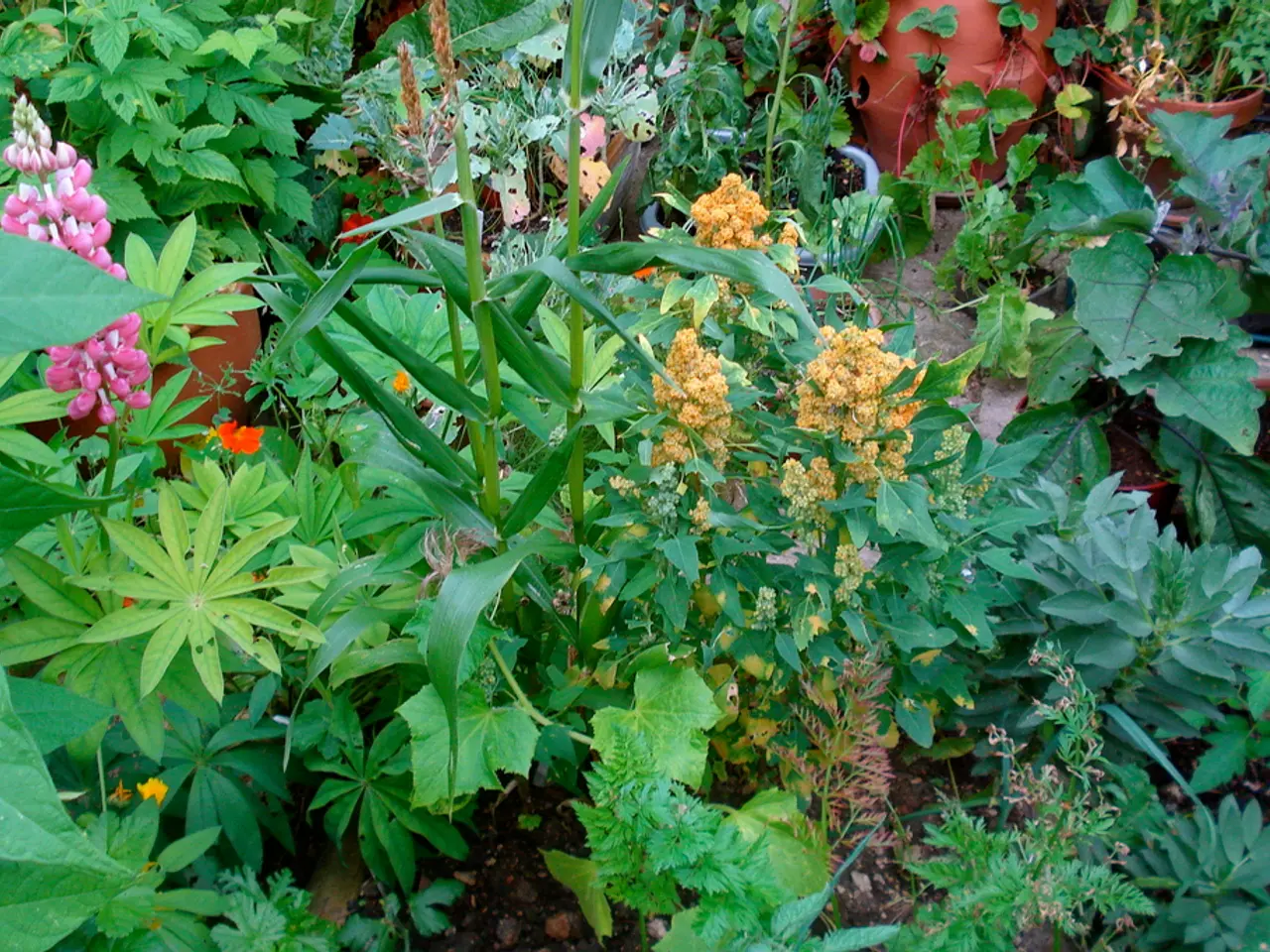Guide on Crafting a Zero-Waste Garden: Delving into Composting and More
In the quest for sustainability, gardening enthusiasts are increasingly turning to zero-waste practices. Beyond composting, natural pest control, and using native plants, several additional strategies can enhance the implementation of a zero-waste garden.
Firstly, prioritising soil health is crucial. High-quality, organic potting mixes rich in nutrients support microbial health, and soil should be amended with organic matter regularly. Rotating crops annually prevents nutrient depletion and reduces pest buildup.
Smart water management is another key aspect. Drip irrigation systems or self-watering containers help conserve water and deliver moisture efficiently. Rainwater can be collected in barrels for reuse, and mulching soil retains moisture and suppresses weeds.
Technology and automation can also play a role in a zero-waste garden. Soil moisture sensors and automated watering kits provide precision irrigation, while LED grow lights extend growing seasons indoors. Hydroponic or aeroponic systems allow soil-less gardening suitable for limited spaces.
Eliminating single-use plastics and chemical inputs is another important step. Plastic planters can be replaced with sustainable options like terra cotta, wood, or repurposed household items. Biodegradable newspaper pots are ideal for seed starting, and homemade organic fertilizers made from kitchen scraps avoid packaged chemical fertilizers.
Reducing, reusing, repairing, and recycling are core principles of a zero-waste garden. Household materials and garden items are reused year after year, tools are repaired instead of replaced, and garden waste and containers are recycled properly.
Garden design optimisations, such as raised beds or vertical gardening, help maximise space efficiently. Grouping plants with similar water and sunlight needs optimises irrigation, and thoughtful layout and plant selection reduce waste.
Practising natural pest control by using neem oil, insecticidal soap, or introducing beneficial insects like ladybugs and lacewings avoids the use of chemical pesticides. Repurposing household items as plant containers, such as tin cans, old teapots or coffee pots, plastic bottles, mason jars or glass jars, old shoes or boots, egg cartons, colanders, old tires, worn-out drawers, old bathtubs, milk cartons, wine corks, and old handbags, is a strategy for reducing waste.
Exchanging surplus produce with neighbours or participating in local community exchanges reduces food waste. Composting organic waste, such as grass clippings, leaves, yard and tree trimmings, food scraps, sawdust, wood chips, sticks, twigs, and pine needles, enriches the soil and supports sustainable gardening practices.
Creating a "lasagna" garden bed by layering garden clippings, compost, and other organic matter helps build rich, fertile soil while recycling garden waste. Leaf mold can be created as a composting method using leaves, which can enrich the soil and reduce waste. Mulching can be created from shredded leaves or using grass clippings for weed control.
Choosing native and drought-resistant plants requires less water and maintenance and attracts beneficial insects and pollinators. Growing your own seeds reduces the need to purchase new seeds each year and fosters biodiversity. Using garden clippings for composting, mulching, weed suppression, creating pathways, chop and drop cover crops, grass clippings tea, leaf mold, and wildlife habitats are effective ways to repurpose them.
Implementing rainwater harvesting by collecting rainwater in barrels to irrigate the garden conserves water and reduces reliance on municipal supplies. Reducing plastic use in a zero-waste garden by avoiding plastic pots and tools and looking for biodegradable options or repurposing items you already have promotes sustainability.
To start a zero-waste garden, one can compost food scraps and garden clippings by digging a hole about 10 to 12 inches deep. Creating a worm bin for vermicomposting can turn kitchen scraps into nutrient-rich compost while minimising waste. Educating yourself and others about sustainable practices and sharing your knowledge with your community promotes a collective effort towards zero waste.
- In addition to zero-waste gardening practices like composting and natural pest control, cultivating a 'lifestyle' that revolves around sustainability could involve using organic potting mixes and homemade fertilizers from kitchen scraps in the 'education-and-self-development' category.
- When it comes to 'home-and-garden', reducing, reusing, repairing, and recycling extend beyond just garden waste. Repurposing household items as plant containers is an excellent example of the 'fashion-and-beauty' of reinventing the mundane, and promoting sustainability at the same time.




